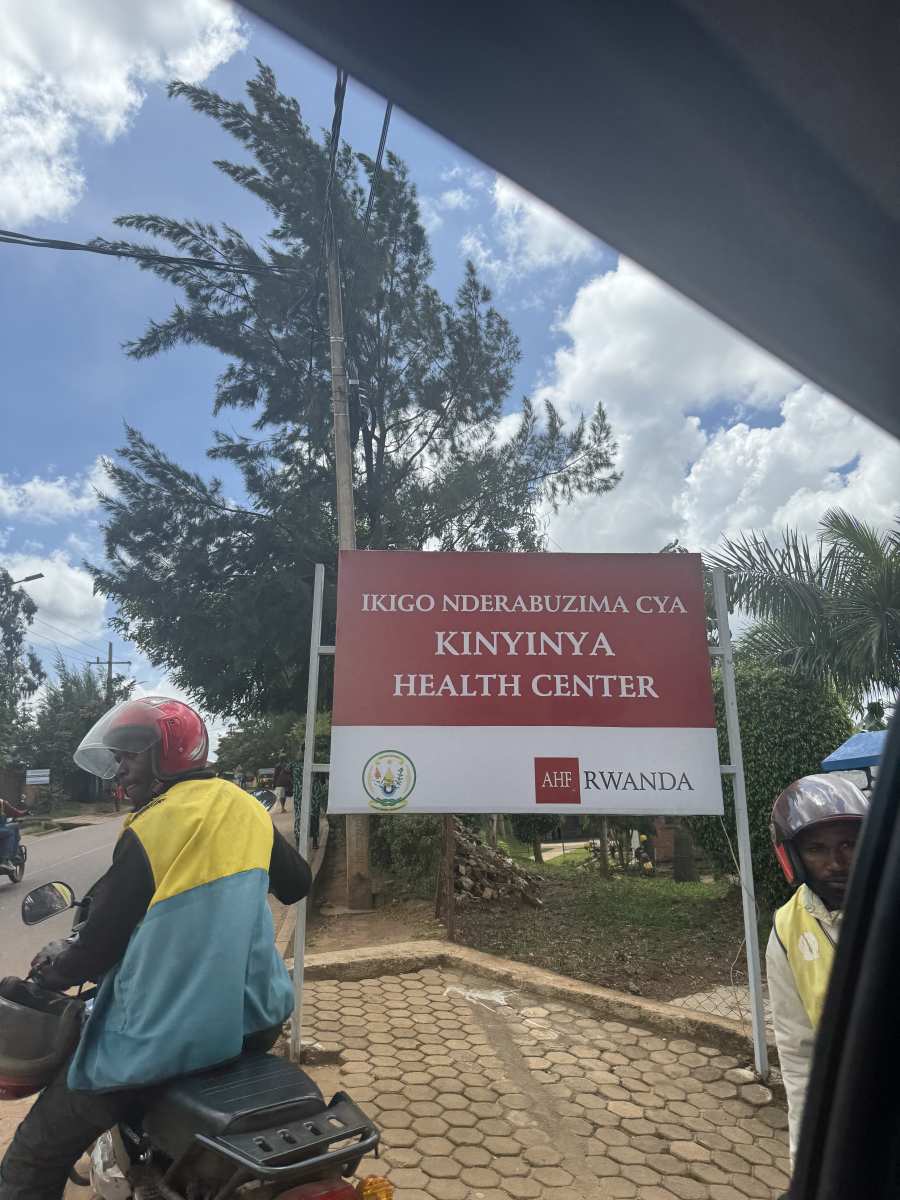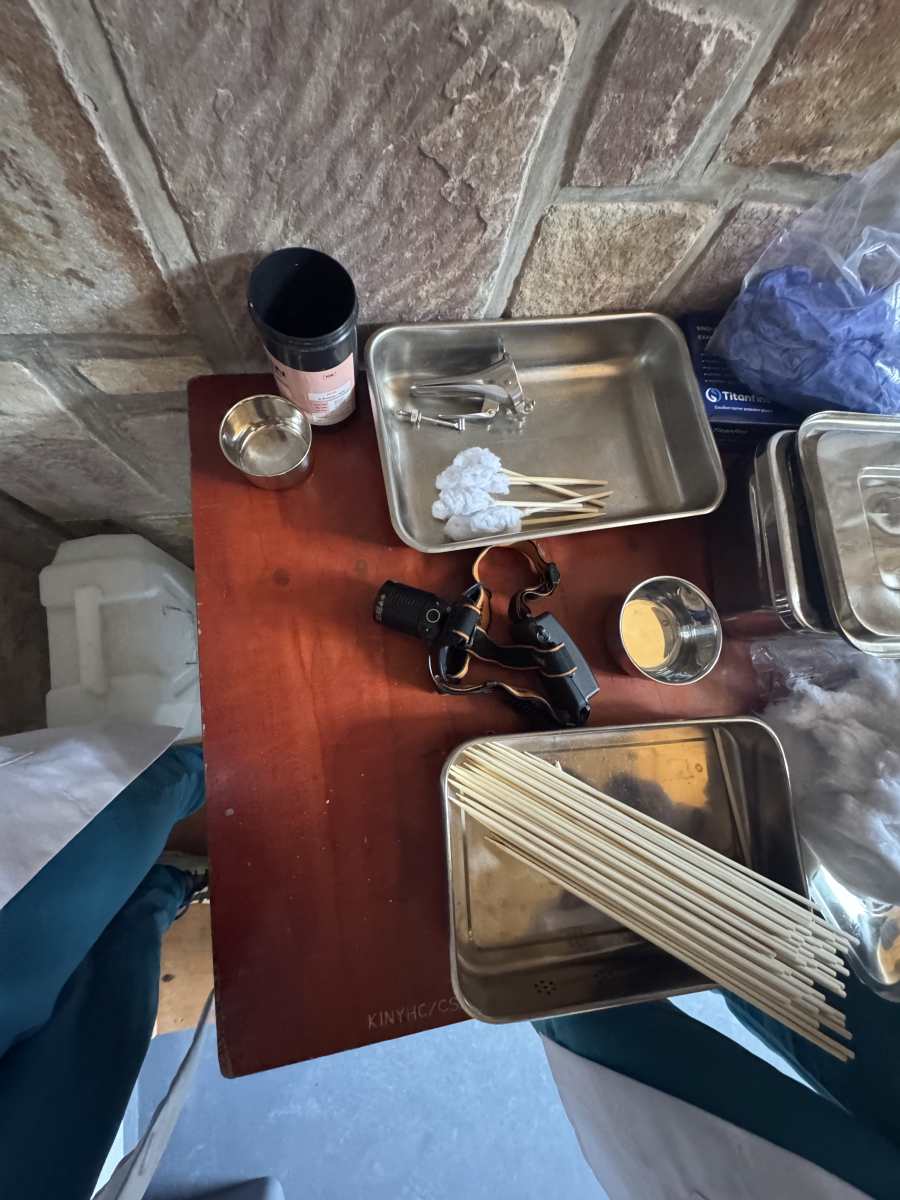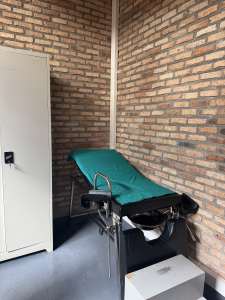I plan to travel to Rwanda with the International Organization for Women and Development (IOWD) to assist with their cervical cancer screening program. The goal is to identify and treat cervical cancer. Through thermoablation we will work to treat precancerous lesions at the earliest possible stages. If cancerous lesions are detectedd, we will be collaborate with local healthcare providers to ensure that patients are promptly evaluated and treated.
Addtionally, we will provide training and education on early detection and treatment of cervical cancer to Rwandan healthcare professionals. When cervical cancer is not detected at early stages, it has the potential to be deadly. According to the National Cancer Institute (2023), the 5-year survival rate when cervical cancer is detected early is 91%. However, this rate significantly drops to 60% if cervical cancer has spread to nearby areas of the body, and continues to declines to a 19% 5-year survival rate once it has spread to further areas of the body.
Early detection and treatment will save lives and positively impact both Rwandan women and Rwandan society.
National Cancer Institute. (2023, April 27). Cervical cancer prognosis and survival rates. U.S. Department of Health and Human Services. https://www.cancer.gov/types/cervical/survival
This project will save Rwandan lives through early detection and treatment of cervical cancer. Each year, Rwanda will battle an estimated 1,229 new cases of cervical cancer. With those 1,229 new cases, 829 women––others, sisters, and wives–– will die from the largely preventable disease (Bruni, Albero & Seranno, 2023). The International Agency for Research on Cancer (2024), estimated that in the absence of early screening or interventions, 42,614 Rwandan women will die of cervical cancer between 2020 and 2070. This issue deeply affects the population at an alarming rate.
The project will also support Rwandan healthcare providers by focusing on training and education, equipping them to continue early detection and treatment. This will contribute to the goal of decreasing cervical cancer rates across the country. As healthcare providers build confidence and expertise, their patients will benefit throughout their careers. Through our work both healthcare professionals and Rwandan women will greatly benefit from this project. Healthier women lead to a healthier society as a whole.
Bruni, L., Albero, G., Serrano, B., et al. (2023, March). Human papillomavirus and related diseases in Rwanda: Summary report 10. ICO/IARC Information Centre on HPV and Cancer. https://hpvcentre.net/statistics/reports/RWA.pdf. Accessed February 23, 2025.
International Agency for Research on Cancer. (2024, November). Cervical cancer factsheet: Rwanda. https://gco.iarc.fr/media/covid/factsheets/646-RWA-rwanda.pdf
The more women who participate in cervical cancer screening, the fewer deaths Rwanda will experience each year. Early detection of cervical cancer and treatment of precancerous lesions can and will save lives. Screening in Rwanda is essential, but both the organization and I can only support a limited number of patients for a short time. Therefore, educating and training Rwandan healthcare professionals is crucial, as it will help sustain screening efforts and allow them to share their knowledge with future generations. With deeper understanding and skills, Rwanda will continue to see a decrease in the rates of cervical cancer, a life threatening but preventable disease.
In addition to providing education and training, I will also be receiving further education and training. I will gain invaluable insight working alongside fellow healthcare professionals that I can take home to the United States in my own practice. When working in different healthcare systems, such as Rwanda’s, I will be exposed to unique perspectives, enhancing my understanding and refining my clinical skills. The large amount of screening that will be completed will also allow me to gain greater expertise in identifying abnormal findings during cervical exams. With increased exposure to abnormal findings, I will enhance my skills in early detection, ultimately benefiting both the current and future patients I care for. Cervical cancer impacts individuals globally, and with the chance to travel to Rwanda, I would be honored to help further reduce the incidence of cervical cancer, both abroad and at home.










Our trip impacted both the healthcare providers we trained and the patients we served. We worked closely with nurses and medical students, many of whom were eager for practical, hands-on training in cervical cancer screening using VIA. For some, it was their first time receiving this kind of instruction, and they were enthusiastic about being able to use these skills to better care for women in their communities. For others who we had trained during past visits, it was deeply rewarding to reconnect, continue supporting them, and champion the hard and dedicated work they’ve carried forward since our last time together.
We also offered cervical cancer screenings to women who had come from near and far—some traveling long distances just to be seen. Many of them shared personal stories about how cervical cancer had touched their lives or the lives of people they love. These conversations reminded us how important it is to bring both care and education directly to communities that need it.
The experience was powerful for everyone involved. We saw firsthand how increased access to knowledge and care can empower both health workers and patients, and we’re committed to building on that momentum.